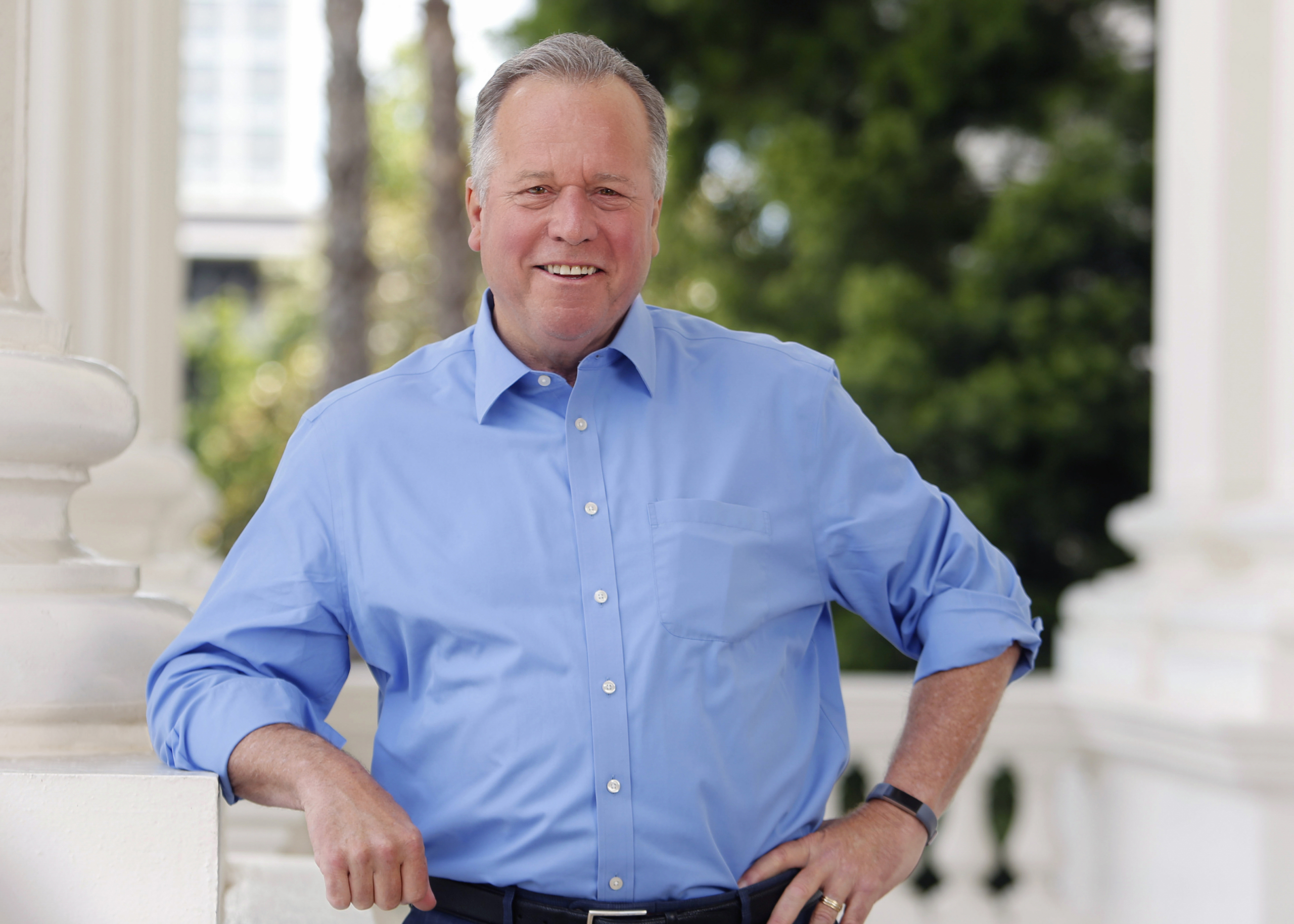5 Questions With Senator and Alumnus Bill Dodd

After graduating from Chico State, Bill Dodd (Business Administration, ’78) embraced the family business and went on to own and operate one of the largest full-service Culligan Water companies in California. In 2001, he decided local government was a place he could also make a difference. He spent 14 years as a Napa County Supervisor, then represented California’s 4th Assembly District, and in 2016 was elected to represent California’s 3rd Senate District, which includes all of Napa and Solano Counties, along with portions of Sonoma, Yolo, Contra Costa, and Sacramento Counties. With less than three years left in his term, Dodd remains as committed as ever to working on meaningful legislation that improves his state and community.
He also has served as an honorary commander for the 60th Air Mobility Wing at Travis Air Force Base, and as chair on multiple boards and commissions in Napa County. The Napa Chamber of Commerce recognized him for his philanthropic efforts in 2014, naming him Citizen of the Year for his efforts in raising over $3 million for local charities. This month, he will be honored as the 2022 Distinguished Alumnus of the College of Business.
Dodd lives in Napa with his wife, Mary. They have five children and 12 grandchildren.
Politics and legislation can make for a challenging career. What makes it worth it?
I just looked at what was going on in the state of California and I wanted to try to leave it a better place, not only for my kids and grandkids but for everybody’s kids and grandkids. It sounds so canned but it’s true, and to me it’s so important. I also ran because I was a moderate, and I believe that solutions—the best solutions—often come from the middle, not the far left or the far right.
Some say we are more divided politically than ever before. Do you believe that, and how do you work to cross party lines to make effective change?
It’s true that there is a significant political divide, at least at the far flanks on the left and the right. But there is still room for progress, cooperation, and civility. The last thing Californians want to hear is politicians fighting. I think it’s valuable to have the perspective of having been a Republican and now being a Democrat for the last decade because I understand the shortcomings on both sides. I’ve been able to get things done by trying to craft solutions that appeal to the vast majority of Californians in the middle. Sometimes that means going for incremental progress over soundbites and unrealistic goals or solutions that create more problems than they solve. We have big challenges to solve and we can’t afford to let partisanship create paralysis.
What is the most meaningful bill you have authored?
When I woke up on October 8, 2017, I never anticipated that any of my legislation would be in the areas of energy, utilities, fighting wildfires, reducing vegetation, fire prevention. After the Tubbs Fire and the Atlas Fire—and the Camp Fire—I had a bill, Senate Bill 901, that was a base for a new direction in funding and policy for the state of California and how we reduce vegetation and manage our utilities. I’ve since been part of 20 bills that have been effective in addressing insurance coverages, new technology centers, mandating that utilities do the work to exact standards, and making sure victims get paid out by insurance companies.
What has been the biggest surprise in your professional journey?
When I left Chico, I could get along with people but was pretty stuck in my values. When I got into politics, I learned that everyone comes with their different experiences, whether it’s a county board of five people, the State Assembly at 80 people, or the State Senate at 40. My first two years, I didn’t listen enough and I didn’t compromise enough. It surprised me that the more I listened, the more it gave me license to be able to say “here is a compromise opportunity.” There are things we could be doing in our country right now—in our local government, our state, and even our school districts—where people could do more to listen and to compromise.
How do you Do and Dare?
It’s a really humbling experience to represent 1 million individuals in my Senate district. I feel like there is a trust, and every day I want to show up and work hard, and not let up. But also, as I am approaching retirement, I’m also committed to setting an example for my family, to spend time with them and to challenge them to learn and gain experiences and success in their life so they can have a lot of the things that I’ve had.


